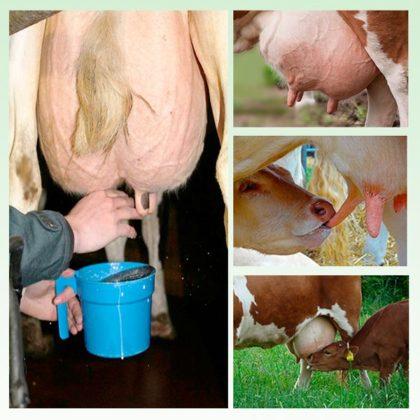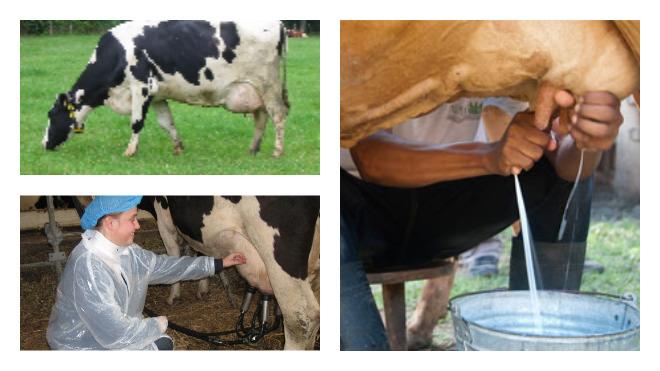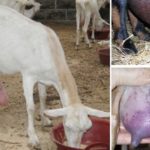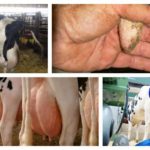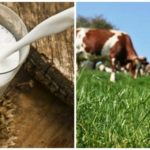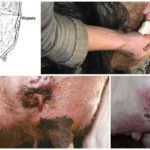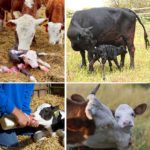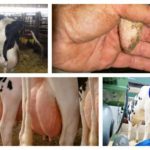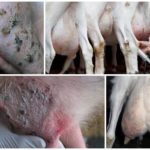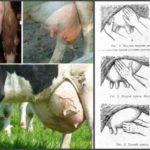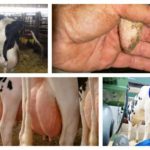Milk is a valuable and healthy product that is an important element of the human diet. It contains a lot of vitamins and minerals that have a beneficial effect on human health. To obtain milk, the cow must be milked regularly. If an animal remains without milking for a long period, the risk of dangerous diseases increases. Let's look in more detail at what happens if you don't milk a cow for a long time.
What happens if you don't milk a cow?
A cow raised in the wild adapts to producing a certain amount of milk exclusively during calving. Feeding the calf lasts from 9 to 12 months, after which it switches to adult food - grass, leaves, branches.Once the calf stops feeding, the cow stops producing milk until her next calving.
With animals kept at home, everything is much more complicated. First of all, a cow is purchased to produce milk. This means that the farmer is interested in a long lactation period. Immediately after calving, the cow should be milked (every 2-3 hours). It is extremely important that no fluid remains in the mammary gland, otherwise there is a risk of serious diseases. Frequent milking helps to ensure constant milk production.
The alveoli begin to produce fluid more intensely. It enters the milk channels and is distilled into tanks. They are connected to the nipple canals. Milk is produced evenly throughout the day. If you do not milk a cow for a long time, the liquid will begin to compress the capillaries and veins. This will lead to a sharp decrease in milk yield, increasing the risk of serious health problems for the animal.
If milk accumulates for a long time, the liquid may spontaneously flow out through the nipple canals. It has a sweetish taste, which will certainly attract insects. They will bite the cow's udder in an attempt to get to the milk. There is a high probability of infection.
It should also be noted that when milk spontaneously leaks out, the nipples become dirty. The likelihood of developing harmful fungal microorganisms increases. This will lead to pathological microflora entering the liquid, due to which the milk will become unfit for consumption.
Udder swelling
The most common problem with cows that have not been milked for a long time is udder swelling. Due to excessive accumulation of fluid, the circulatory system begins to not work at full capacity. As a result, dysfunction occurs. The appearance of problems with blood vessels entails stagnation of lymph in the mammary gland, which is the root cause of edema.
Swelling can form on one or all lobes of the udder. The problem is clearly visible to the naked eye:
- the skin at the site of the lesion swells and becomes thickened;
- the site of swelling takes on a rich red color;
- milk yield is significantly reduced;
- shortening of the nipples is observed.
If the swelling is not stopped in the early stages, the cow will develop serious health problems. Milk production in the affected lobe of the mammary gland stops, and the skin on the udder becomes bluish.
When edema appears, it is necessary to carry out complex therapy, limit the intake of succulent feed, salt and water. The animal will have to receive IVs and be given special medications.
Mastitis
Prolonged absence of milking leads to the appearance of signs of mastitis. This disease occurs as a result of the activity of staphylococci and belongs to the group of infectious ones. Mastitis occurs in one lobe of the gland and covers the entire udder if a course of treatment is not prescribed.
Identifying mastitis is quite simple. Upon careful examination and palpation of the udder, you can detect a thickening the size of a pea. At the same time, the cow experiences pain. If urgent measures are not taken, mastitis begins to grow, gradually covering new parts of the udder.
Until you complete the full course of treatment and get rid of lumps in the mammary gland, milk is strictly forbidden to be consumed.Veterinarians recommend disposing of the resulting liquid during the entire period of illness, in the next 15 days after recovery.

